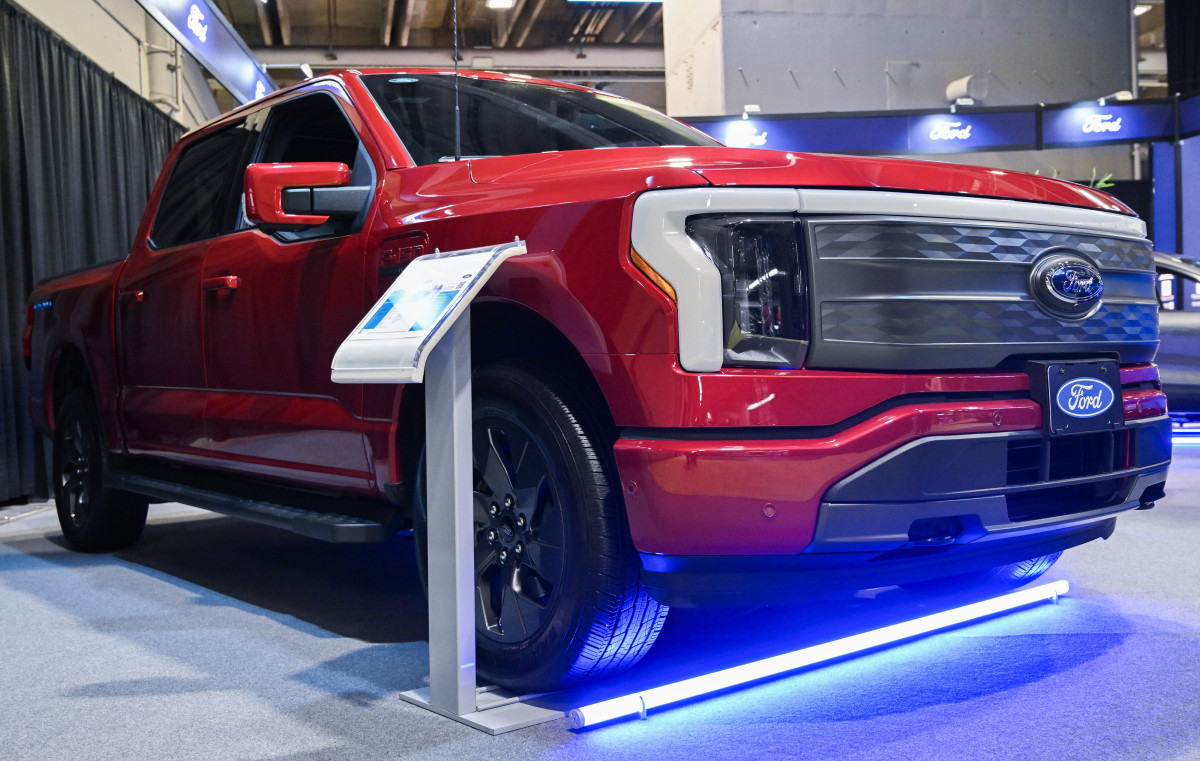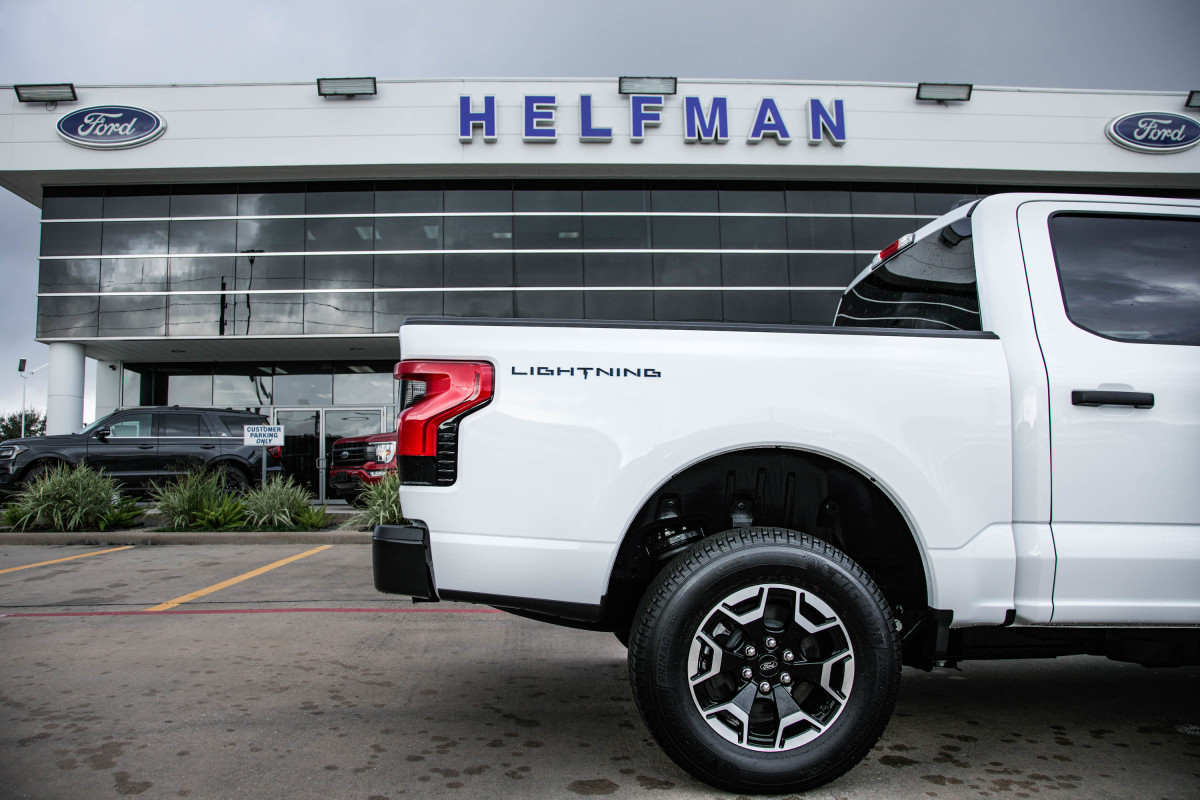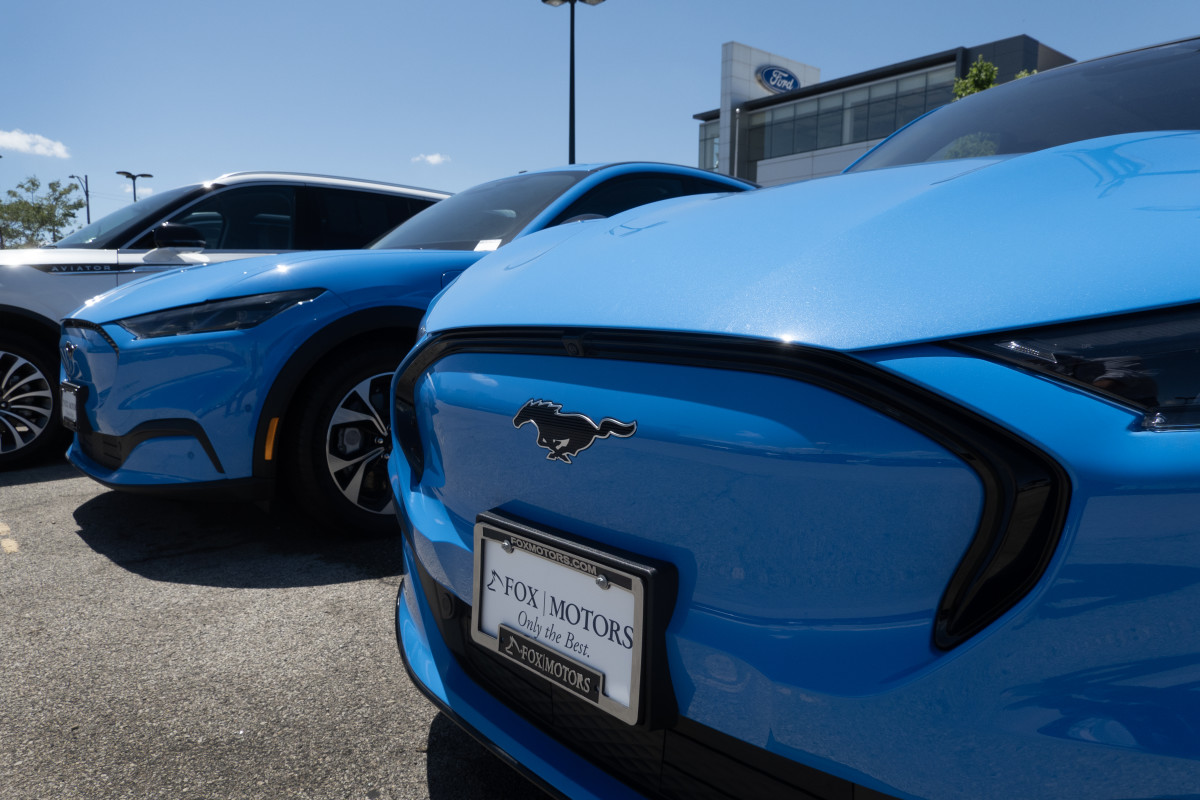
Detroit Big Three automaker Ford (F) is changing the way the brand sells its battery-electric vehicles, with its latest move placing the automaker's EVs within easy reach of nearly 90% of Americans.
Though the new move can translate to more sales and increased foot traffic for dealers, Ford retailers have mixed reactions, as it involved the axing of a controversial and expensive program that the Blue Oval hung over their heads.
Related: Taxpayer subsidies for other people's EVs have reached an insane threshold
In an announcement on June 13, Ford announced that it will be ending its Model e certification program, a program that enables dealers to sell the automaker's electric vehicles at their stores.
In a statement to Automotive News, Marin Gjaja, COO of Ford Model e, Ford's electric vehicle division, said that the evolving EV market required them to change the way it sells its cars.
"At this point, we're basically saying we want to lower the bar to let people get in," Gjaja told AutoNews. "We'll probably have to continue to evolve from here, but we wanted to get everyone in because what we're seeing is a market that is evolving and the customer needs support. We'd rather have more dealers in helping us with that. Before we tried to create focus because we were supply-constrained. But we aren't anymore."

Houston Chronicle/Hearst Newspapers via Getty Images/Getty Images
Ford's advantage over Tesla
Originally announced on September 14, 2022, the Model e dealer certification program was designed for the Ford brand to have an edge over EV startups like Tesla, Rivian, and Lucid.
While startups conducted online EV sales and dealt with a limited physical footprint, Ford had an advantage with its dealer network, which it envisioned as a one-stop-shop for EV customers buying, maintaining and charging Ford-branded EVs.
Related: Jay Leno shuts down EV skeptics in recent podcast appearance
Ford initially gave its dealers until October 31 that year to choose an ultimatum for the potential future of their businesses, which was later pushed to December 2 due to weight of the situation at hand.
Those who wanted into the program could choose one of two certification "levels" that required extensive investment in EV infrastructure equipment and training.
Dealers that wanted to be a Model e Certified dealer needed to invest up to $500,000 in training and charging equipment, while those that opted to be a Model e Certified Elite dealer were looking at an investment of up to $1.2 million. Ford executives said that actual costs for dealerships turned out much lower than their estimates.
Dealers also had the ability to opt out of the Model e dealer certification program, but required them to discontinue selling Ford-branded EVs entirely starting on January 1, 2024.
However, as per the recent announcement, all dealers will have access to Ford EVs starting on July 1st. Instead of the program, it is asking all of its dealers to invest in EV-specific training, install two level 2 chargers and provide adapters for different charge ports in future EVs.
Gjaja says that these the level 2 charging stations can cost around $10,000 each with installation, though dealers can run into additional costs if their buildings require any electrical upgrades.

Ford's EV program winners and losers
Roughly half of Ford’s dealers have adopted the program, spending a large sum upgrading their dealerships to sell and serve EVs in the process. Some of these dealers are hoping for some reimbursement from Ford for their expenditures.
More Business of EVs:
- New study suggests EVs are supercharging an impending environmental crisis
- GM President has bold plans for an iconic sports car's EV resurrection
- Ford CEO says this iconic model will "never" be an EV
As part of the program, Jim Seavitt, owner of Village Ford in Dearborn, Michigan bought two DC fast-chargers, as well as eight level 2 chargers; more than enough EV charging capacity for a dealer his size.
"Given the number of EVs we have sold and will sell in the next year, it's overkill," he told The Detroit News. "I thought I had to do it to sell electric. Those that didn’t do it got off the hook. They have to make that part of it right."
Though its EV certification program will be fading away, Gjaja said that the program was a way for Ford to understand EV customers, hoping to help its dealers shift away from the "old days" of selling cars.
“What we tried to do is use Model e to innovate on behalf of Ford and really try to understand what we needed to do to meet the customers where they were,” Gjaja told Automotive News.
“Net promotor scores, a measure of customer satisfaction, on our EV business have skyrocketed over the course of rolling out the program. The changes have been working, we feel very good about what we’ve done to train our dealers and shift some of these things.”
The Ford Motor Company, which trades under F on the New York Stock Exchange, is down 2.39%, trading at $11.66 at the time of writing.
Related: Veteran fund manager picks favorite stocks for 2024







